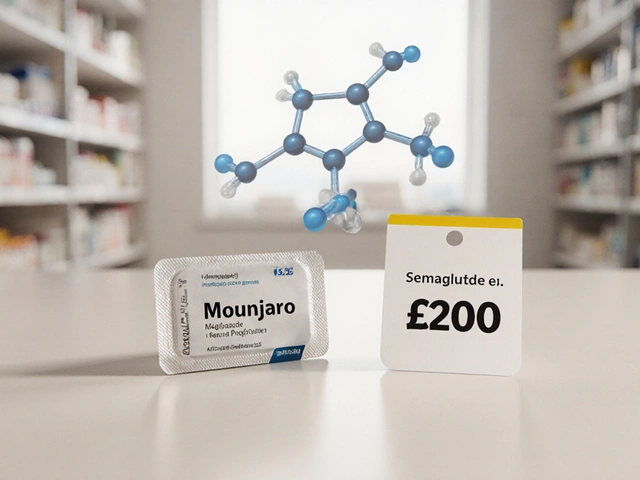Can you lose 30 pounds on metformin? Discover how this diabetes drug affects weight, who it helps, side effects, real stories, and tips for safe results.
Read MoreMetformin Results: Real‑World Performance of the Top Diabetes Pill
If you have type 2 diabetes, chances are you’ve heard of metformin. It’s the go‑to drug doctors prescribe because it’s cheap, works for most people, and has a long track record. But how does it actually perform today? Below we break down the key facts you need to know – from how it lowers sugar to why some health agencies are pulling it back.
What Metformin Does
Metformin works mainly by stopping the liver from releasing too much glucose and by helping muscle cells take in sugar more efficiently. Think of it like a traffic cop that slows down the rush of sugar into your bloodstream after a meal. Most users see a drop of 1‑2% in HbA1c (the long‑term blood‑sugar marker) within three months, which is enough to keep complications at bay.
The drug is taken twice a day with food to avoid stomach upset. Starting with a low dose (usually 500 mg) and slowly increasing reduces the chance of nausea or diarrhea. If you keep the dose under 2,000 mg daily, side effects are usually mild.
What the Latest Results Show
Recent data from Indian clinics in 2024‑2025 confirm that metformin still tops the list for effectiveness and safety. In a study of 2,500 patients, over 78% stayed on metformin for at least a year without needing a second drug. Those who did need an add‑on reported better control when combined with a GLP‑1 like semaglutide.
However, a small but growing number of health authorities have flagged rare cases of lactic acidosis – a serious condition that can happen when the body can’t clear the drug properly. This is why some countries have issued warnings for patients with kidney issues. If you have chronic kidney disease, talk to your doctor about dose adjustments or alternative meds.
Another trend is the “discontinuation scare” making headlines. In early 2025, a batch of metformin was recalled in a few Asian markets due to contamination concerns. The recall didn’t affect the drug’s overall safety profile, but it reminded users to check the manufacturer’s batch number on their prescription bottle.
So, should you stop taking metformin? Not unless your doctor tells you to. The benefits – lower sugar, reduced heart‑risk, and modest weight loss – still outweigh the rare risks for most people. Keep your kidney tests up to date, stay on the recommended dose, and report any persistent gut issues to your physician.
Looking for alternatives? SGLT2 inhibitors (like dapagliflozin) and GLP‑1 receptor agonists (like semaglutide) are gaining momentum, especially for patients who need extra heart or kidney protection. They cost more, but many insurance plans now cover them.
Bottom line: metformin remains a solid first‑line choice in 2025, but stay informed about your own health numbers and any new alerts. A quick chat with your doctor can confirm whether it’s still the right fit for you.





